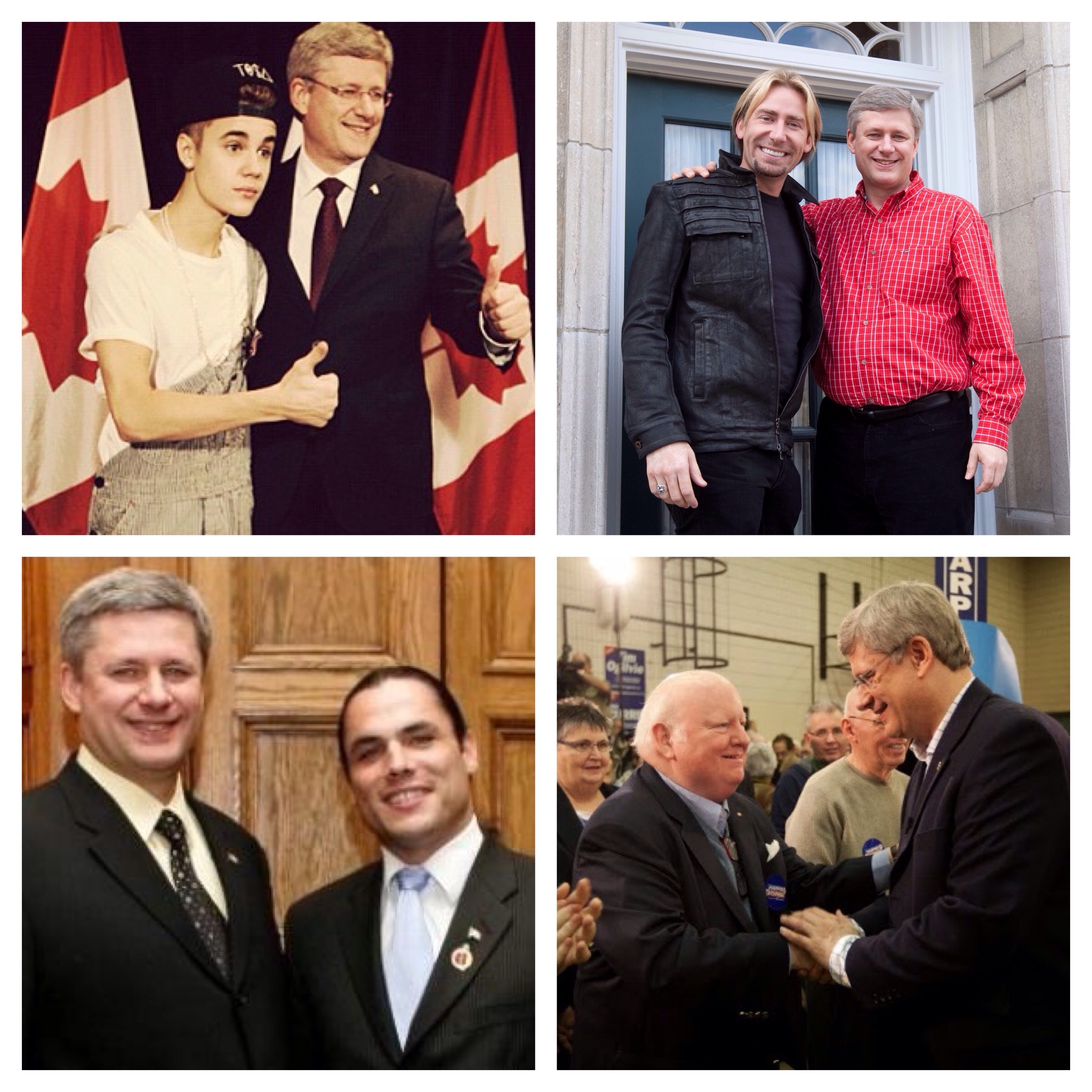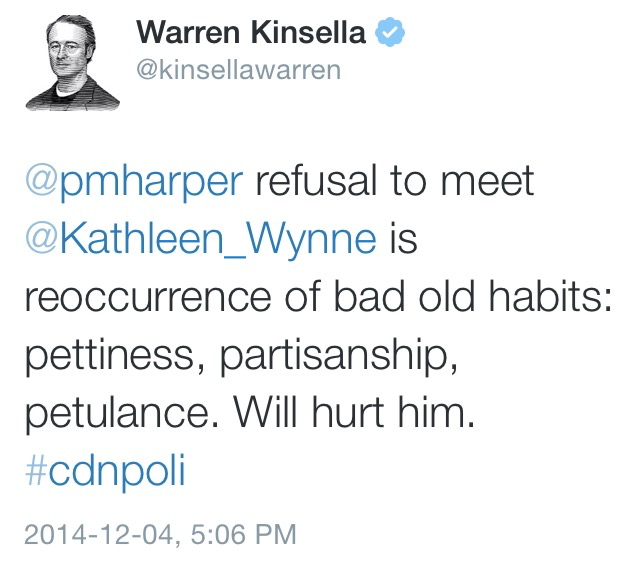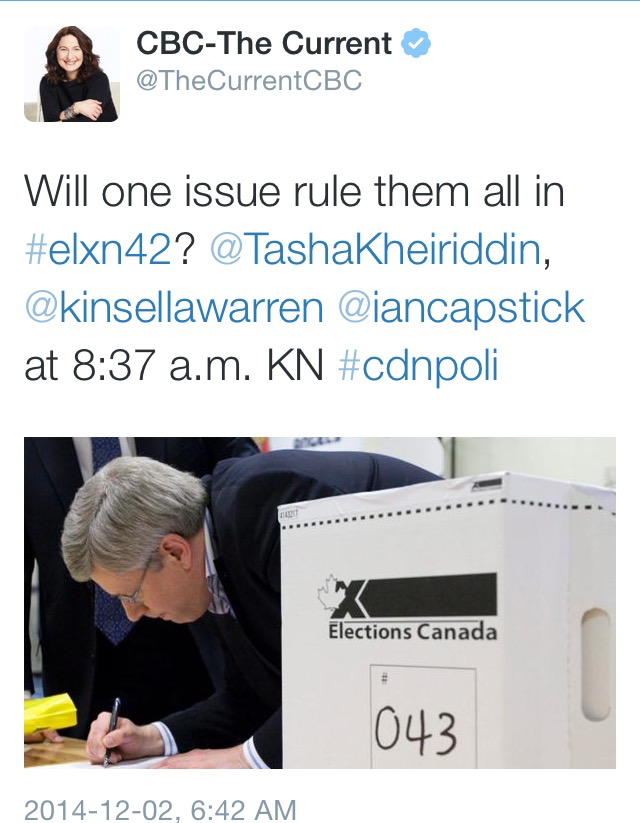In Tuesday’s Sun: they’re disgusting, but they’re working
Political truths aren’t obscure. Most of the time, they’re right out in the open, for all to see.
Turn on your TV – or your radio, or your PC – and you will see one of the principal reasons why Stephen Harper is competitive, again. Everywhere you look, everywhere you turn, your tax dollars are being deployed to broadcast the Conservative Party’s ubiquitous “Economic Action Plan” ads.
There’s no accounting for what the latest spate of ads cost, naturally. But, to date, it is known that more than $100 million in public funds have been blown on the Action Plan’s five-year bacchanal of partisan self-promotion.
The ads do not reference the Conservative Party’s name, Tories will say. But the ads also do not reference anything that is real, either. The latest spate promote a family-focused tax package that hasn’t even passed Parliament yet. And when you see them, you know that tagging them with a chirpy “vote Conservative” closing line would be almost redundant.
To make matters appreciably worse, the Economic Action Plan ads are not the only such abuse. Lately, untold fortunes have been spent on a series of Health Canada anti-marijuana ads. “The science is clear. Marijuana use equals health risks,” the ads proclaim, because none of us apparently already knew that regularly inhaling any kind of smoke is inadvisable. All that is missing from the Health Canada agitprop is another kind of tagline: “Don’t vote for Justin Trudeau, because he wants to make it easier for your kids to get drugs.”
Some will say that they are not affected by such advertising. But the undeniable truth is this: big ad campaigns work. That’s why corporations and governments do them – because, if done well, they reliably move public opinion.
Thus, the other truth, referenced off the top: Stephen Harper, whose political obituary has been written many times since Justin Trudeau became Liberal leader, is decidedly not dead. And, therefore, the people who are paid to track such things have observed diminutive – but significant – shifts in public opinion. Stephen Harper, once a political goner, is back in the hunt.
That Ipsos poll released in the middle of last week, for example: it showed the Conservatives and the Liberals tied, nationally. As with other polls, the Ipsos survey – conducted over three weeks, and involving more than 8,000 Canadians – found that the Liberals have been slipping, somewhat, and the Conservatives have been edging up, somewhat.
A Nanos poll released on the same day, meanwhile, proclaimed that Stephen Harper has achieved a twelve-month high on the key question of who Canadians prefer as Prime Minister. Nanos found that 33 per cent selected Harper, while 29 and 20 per cent favoured Trudeau and Thomas Mulcair, respectively. Three months ago, on the same question, Trudeau had been ahead of Harper by six points.
There are other reasons that explain why Harper is doing well, of course.
His decision to deploy our Armed Forces in the international effort against ISIS is very popular with Canadians. The NDP and the Liberals have been preoccupied with two unseemly Parliament Hill sexual harassment cases for weeks, with no end in sight. The Canadian economy is heading into a “broadening recovery,” said the Bank of Canada’s governor, coincidentally on the very same day Ipsos and Nanos released their polling.
When examining political cause-and-effect, it is never just one thing that accounts for big shifts in political fortunes. It’s a lot of things.
But, in Canada, if there is a single factor that accounts for the spring in Stephen Harper’s step, it is the repellent and revolting orgy of pro-Conservative advertising, funded by us, the taxpayers.
And it is all right there in the open, for all to see.




